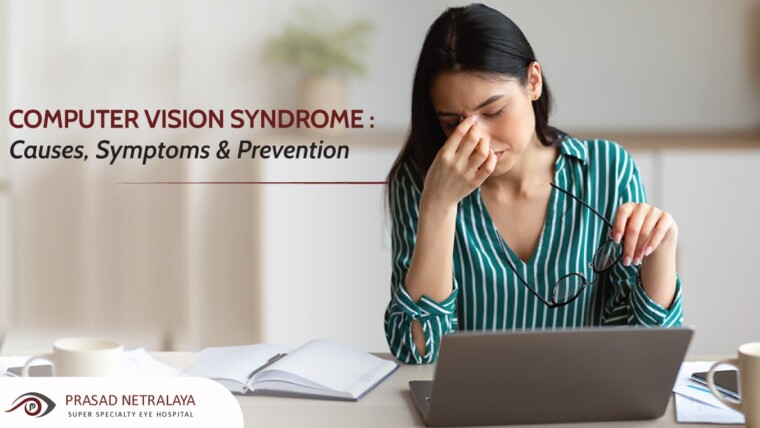Yellow eyes are indicative of a wide range of health problems, from minor to serious. Whether it’s liver disease or allergies, there are a number of conditions that can cause the whites of the eyes to take on a yellow hue. Therefore, you need to understand the underlying causes of yellow eyes before getting the proper treatment and care.
In this blog post, we will dive into the causes and treatments of yellow eyes and what you need to know to keep your eyes healthy and white.
Table of Contents
Causes of Yellow Eyes
If you notice your eyes turning yellow, you may be suffering from jaundice.
This is a medical condition characterized by the yellowing of the skin and eye whites. It even results in dark urine and light-colored stools.
Factors That Lead To Jaundice
Jaundice is caused by a yellow pigment produced by the breakdown of red blood cells as a result of an accumulation of bilirubin in the blood and tissues.
Simply put, bilirubin travels from the liver to the bile ducts before being excreted by your body. However, if this process doesn’t follow its natural course, bilirubin may accumulate in your skin, turning it yellow. The same thing can happen to your eyes, leading to yellow eyes.
Organ Malfunction
If you notice your eyes turning yellow, check to see if your internal organs are functioning normally. When one or more of these organs malfunctions, the eyes can turn yellow:
- Liver
- Gallbladder
- Pancreas
Other Possible Reasons for Yellow Eyes
There are several diseases and conditions that can cause yellow eyes, such as:
- Hepatitis
- Gallstones
- Drinking too much alcohol
- Taking certain medicines
- Liver infection
- A reaction to a blood transfusion
- Sickle cell anaemia
- Malaria
- Cirrhosis
Symptoms of Yellow Eyes
The main symptom of yellow eyes is, unsurprisingly, the yellowing of the whites of the eyes. In addition to this, you may also experience the following symptoms:
- Fatigue: Yellow eyes may indicate an underlying medical condition causing fatigue and weakness.
- Itching: Certain medical conditions that cause yellow eyes can also cause skin itching.
- Dark urine: High bilirubin levels in the blood can cause urine to turn dark.
- Light-colored stools: When bilirubin is not properly eliminated from the body, the stool can become light-colored or clay-colored.
- Abdominal pain: Some medical conditions that cause yellow eyes also cause abdominal pain and discomfort.
- Loss of appetite: Certain medical issues that cause yellow eyes can also lead to a decrease in appetite and weight loss.
It’s important to remember that these symptoms are not always indicative of yellow eyes and may be caused by other medical conditions. If you’re experiencing any of these symptoms, consult a doctor for a proper diagnosis and treatment.
Diagnosis and Treatment for Yellow Eyes
Before proceeding with a diagnosis of yellow eyes, you’re required to undergo a physical examination and a review of your medical history.
Your doctor will examine the whites of your eyes to determine the extent of the yellowing. This is followed by a search for other yellow eye symptoms, such as liver or gallbladder disease or abdominal pain or tenderness, in order to decide the treatment for yellow eyes.
Here’s a list of tests your doctor may conduct in order to determine the underlying cause of the yellow eyes:
- Blood Tests: A blood test is an excellent tool for determining elevated levels of bilirubin, liver enzymes, and other markers that indicate liver or gallbladder issues.
- Imaging Tests: In order to get a better vision of the organs, blood vessels, and other structures in the body, doctors may encourage you to conduct an imaging test such as an ultrasound or CT scan.
- Liver Biopsy: By conducting a liver biopsy, doctors can identify any signs of inflammation or damage in the liver. This is done by examining a small sample of liver tissue under a microscope.
- Viral Hepatitis Screening: These blood tests are used to detect the presence of hepatitis A, B, C, D, and E viruses.
Prevention and Management
Treatment for yellow eyes from jaundice will depend on the underlying cause. Here are some common causes and treatments.
1. Jaundice Caused by Liver Disease
Doctors may recommend antiviral drugs for the treatment of viral hepatitis in order to address liver disorders.
To lessen inflammation and limit the progression of the disease, they might even recommend supplements instead of drugs. Even a liver transplant may be considered if the condition is dire.
2. Jaundice Caused by Bile Duct Obstruction
In this case, doctors will try to remove the obstruction and restore bile flow. This procedure requires surgery.
3. Jaundice Caused by Hemolytic Anaemia
When red blood cells are destroyed faster than they can be produced, it’s known as hemolytic anaemia. As a result, there’s a lack of red blood cells, which causes fatigue, weakness, and other symptoms.
Medicines will be used to suppress the immune system. Another possibility is blood transfusions. If the condition is severe enough, a stem cell transplant may be performed.
4. Jaundice Caused by Gilbert’s Syndrome
If you haven’t heard of Gilbert syndrome before, it’s a common and harmless liver condition in which the liver fails to process bilirubin properly.
This genetic disorder is usually benign and does not really require treatment. To manage the symptoms, you can opt for medications and a few lifestyle changes.
Also Read : Eye Redness – Causes, Treatment and When to Seek Medical Help?
Treat Yellow Eyes With the Best Eye Care Today!
Once the cause of the yellow eyes is determined, your doctor will be able to recommend an appropriate treatment plan.
If you suspect you have yellow eyes or other symptoms that are causing you concern, see a doctor as soon as possible.
Prasad Netralaya is a leading eye care hospital that offers cutting-edge treatment and care for a variety of eye conditions. To learn more, please visit our website.
Dr. Vikram Jain, M.S. had his medical training (MBBS) from Kasturba Medical College, Mangalore, India. He did his master’s in Ophthalmic surgery from Kasturba Medical College, Manipal. He currently manages the Glaucoma department of Prasad Netralaya hospital.



